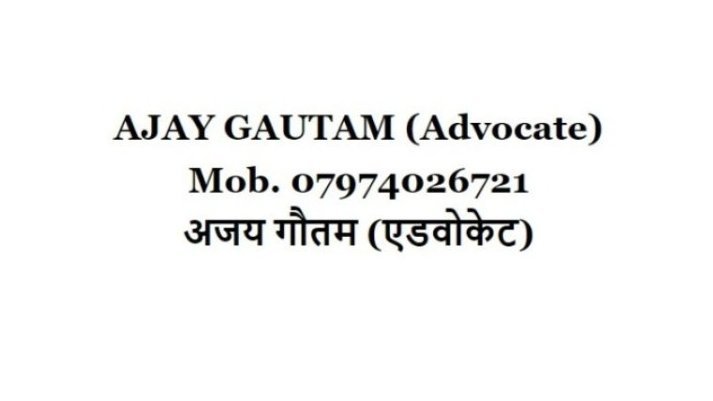Pan-India Lawyer and Legal Services
Pan-India Lawyer and Legal Services
It’s Time to Reshuffle FSSAI for a Healthy Nation
Pan-India Lawyer and Legal Services
Reliable DNA Sources
Pan-India Lawyer and Legal Services
Jurisdiction of Central Administrative Tribunal (CAT)
Pan-India Lawyer and Legal Services
Cow Should Be Declared a National Protected Animal
Pan-India Lawyer and Legal Services
What Is the Future of Developing Countries When Their Economies Shake With One Statement From the U.S.?
Pan-India Lawyer and Legal Services
Be Aware: AI Can Read Brain Signals?
Pan-India Lawyer and Legal Services
Best Advocate in Jabalpur Madhya Pradesh
Pan-India Lawyer and Legal Services
Top 10 Best Advocate in Jabalpur, Madhya Pradesh
Pan-India Lawyer and Legal Services
Best Advocate in Jabalpur High Court
Pan-India Lawyer and Legal Services
Best Advocate in Jabalpur District and Sessions Court
Pan-India Lawyer and Legal Services
Best Advocate in Jabalpur
Pan-India Lawyer and Legal Services
Best Advocate in Jabalpur | Best Lawyer in Jabalpur
Pan-India Lawyer and Legal Services
Best Advocate in Jabalpur – Trusted Lawyers for All Your Legal Needs
Pan-India Lawyer and Legal Services
Best Advocate in Jabalpur (CAT) Central Administrative Tribunal
Pan-India Lawyer and Legal Services
Best Lawyer in Jabalpur | Best Advocate in Jabalpur
Pan-India Lawyer and Legal Services
Best Advocate in Jabalpur (CAT) Central Administrative Tribunal Lawyers
Pan-India Lawyer and Legal Services
Best Advocate in Jabalpur High Court Lawyers
Pan-India Lawyer and Legal Services
Best Advocate in Jabalpur for Legal Consultation
Pan-India Lawyer and Legal Services
Best Advocate in Jabalpur Lawyers Madhya Pradesh
Pan-India Lawyer and Legal Services
Best Advocate in Jabalpur Lawyers (DRT, High Court, CAT) MP and CG
Pan-India Lawyer and Legal Services
Best Advocates in Jabalpur | Best Lawyers in Jabalpur
Pan-India Lawyer and Legal Services
Best Advocates in Jabalpur Madhya Pradesh
Pan-India Lawyer and Legal Services
Best Lawyer in Jabalpur (CAT) Central Administrative Tribunal Advocates
Pan-India Lawyer and Legal Services
Best Lawyer in Jabalpur High Court Advocates
Pan-India Lawyer and Legal Services
Best Advocates in Jabalpur | Top Legal Experts & Law Firms
Pan-India Lawyer and Legal Services
Best Advocates in Jabalpur for Legal Consultation
Pan-India Lawyer and Legal Services
Best Service Matter Advocate in Jabalpur
Pan-India Lawyer and Legal Services
Top 10 Best Banking Law Advocates in Jabalpur
Pan-India Lawyer and Legal Services
